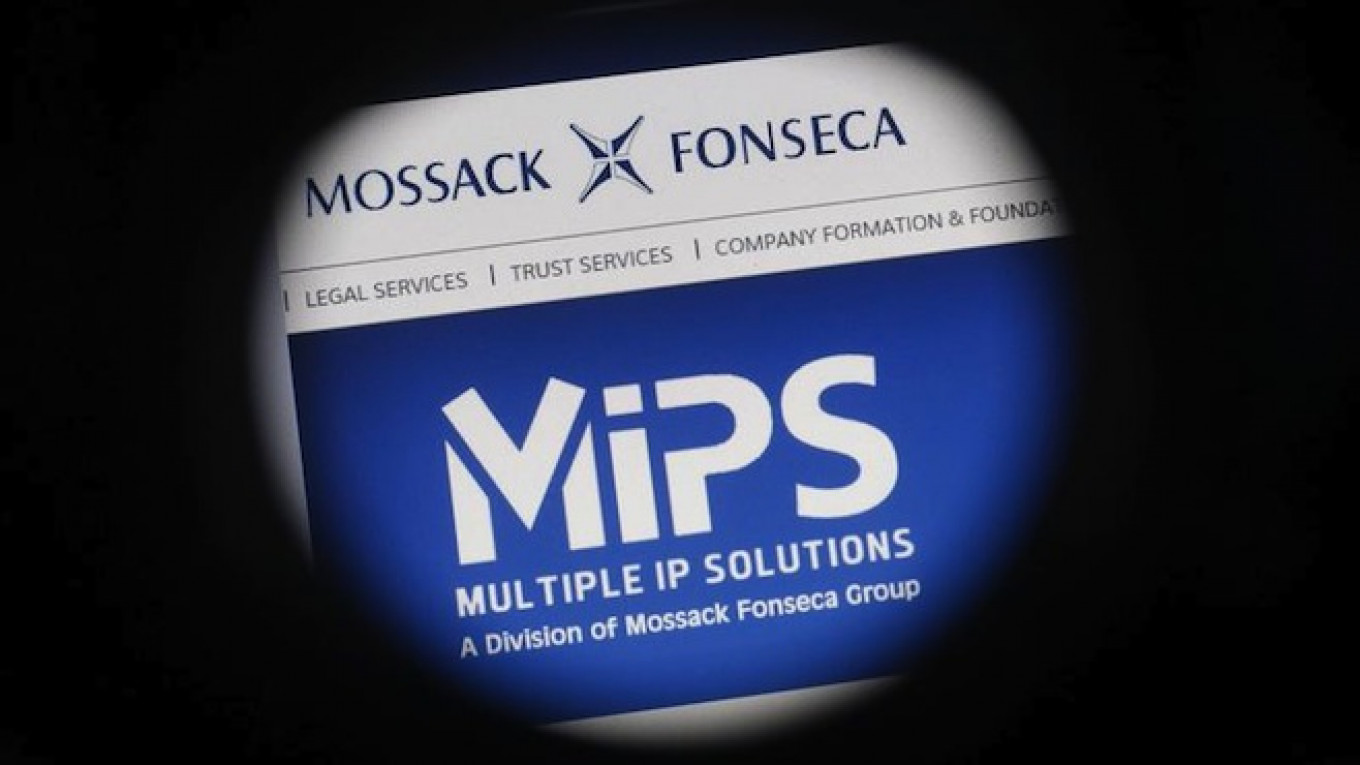The release of leaked data from Panamanian law firm Mossack Fonseca has been greeted with a varied, but largely muted response by Russian media.
The revelations are the result of a year-long investigation by the International Consortium of Investigative Journalists (ICIJ) and the German newspaper Süddeutsche Zeitung on the basis of more than 11 million leaked documents. The records implicate 72 current or former heads of state, including Iceland's Prime Minister Sigmundur Gunnlaugsson and Ukraine's President Petro Poroshenko.
In particular, 12 Russian individuals have been implicated. They include Putin's close friend, musician Sergei Roldugin, who has been accused of being the frontman for the president's own financial empire.
Here is a selection of responses from the Russian media sphere:
Kremlin Press Office
Presidential spokesman Dmitry Peskov, himself implicated in the investigation, noted that the investigation was aimed at "destabilizing the situation in Russia." Speaking at a press briefing, Peskov said that while the president was not directly featured in any aspect of the investigation, the "information attacks" targeted him ahead of upcoming elections.
Peskov compared the publication of the investigation to coverage of "Russian success" in Syria. "The situation in Palmyra was an obvious success, but was hushed up," he said. "Potentially positive news stories had to be interrupted with something."
United Russia
Peskov was not the only loyalist to take to the airwaves. Irina Yarovaya, a prominent deputy of the Pro-Putin United Russia parliament faction, said Russian citizens were targeted in the attack. "The multiple information attacks on Russia's president, the false, deceitful stories are like multiple injections of venom, sprayed in the hope that one would work," the politician said.
State-Media Silence
State media outlets have been careful, defensive, and mostly totally silent — state television channels generally ignored the subject.
The TASS news agency noted that "authors of the publication themselves acknowledged there is no mention of the president's name in any of the documents."
Russia Today, the Kremlin-funded English language media resource toed a similar line. "A huge leak of more than 11.5 million documents from a Panama-based law firm saw the British media jump to accuse President Vladimir Putin of corruption, despite the Russian president not being named in any of the papers," they wrote.
The pro-Kremlin, privately owned Ren-TV chose to highlight the offshore revelations of Jackie Chan rather than those related to Putin.
The Godfather
Independent media and bloggers came to different conclusions.
The independent Vedomosti newspaper focused on the personality of Sergei Roldugin, musician and godfather of Putin's daughter, who, according to the ICIJ-OCCRP investigation was a key player in a shadowy $2 billion offshore network. "One more millionaire friend of Putin has been found out," the Vedomosti newspaper wrote on Sunday evening.
The Kommersant newspaper said the released documents were "less impressive" than another ICIJ investigation from 2013, as "no direct evidence of Russia's corruption deals have been published."
"The published data does not specifically link the operations of Roldugin with any politician's operations," Kommersant said. The published investigation will hit the offshore industry, but is unlikely to change business practices.
"The Panama Papers demonstrate that the problem of corruption doesn't lie in the possibility of covering up information about the illegal transactions or freedom of speech issues, but the problems of democratic institutions, which are not able to create a truly effective anti-corruption mechanisms ?€” even in large transparent jurisdictions," Kommersant said.
Writing on Facebook, Ilya Shumanov, director of the Kaliningrad branch of Transparency International Russia, suggested that the individuals mentioned in the ICIJ-OCCRP report may even find themselves included in the next round of sanctions against Russia.
The head of anti-corruption organization Transparency International, Yelena Panfilova urged readers to understand the revelations not only as offshore dealings, but corruption. "It's very simple," she wrote. "The 2000 UN Convention on Organized Crime and Money laundering, ratified and signed by Russia, clearly states that any money movements by politically exposed persons and individuals affiliated with them ?€” parents, kids, spouses, business partners, etc. ?€” should be checked for potential corruption.”
Russian bloggers were mostly disappointed by the leak, with some arguing that details about massive government corruption revealed little new information.
Contact the author at? a.bazenkova@imedia.ru
A Message from The Moscow Times:
Dear readers,
We are facing unprecedented challenges. Russia's Prosecutor General's Office has designated The Moscow Times as an "undesirable" organization, criminalizing our work and putting our staff at risk of prosecution. This follows our earlier unjust labeling as a "foreign agent."
These actions are direct attempts to silence independent journalism in Russia. The authorities claim our work "discredits the decisions of the Russian leadership." We see things differently: we strive to provide accurate, unbiased reporting on Russia.
We, the journalists of The Moscow Times, refuse to be silenced. But to continue our work, we need your help.
Your support, no matter how small, makes a world of difference. If you can, please support us monthly starting from just $2. It's quick to set up, and every contribution makes a significant impact.
By supporting The Moscow Times, you're defending open, independent journalism in the face of repression. Thank you for standing with us.
Remind me later.


